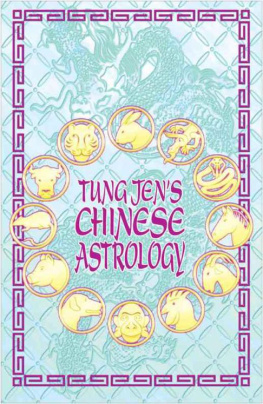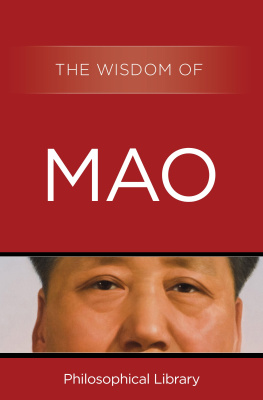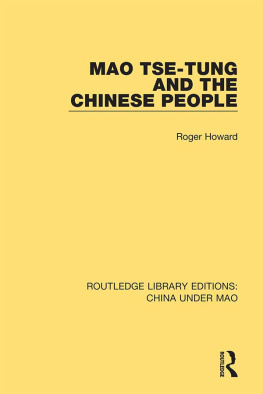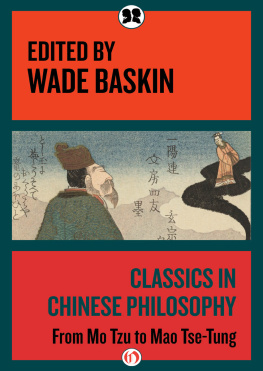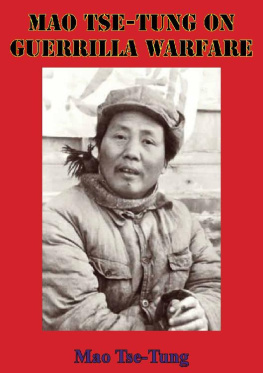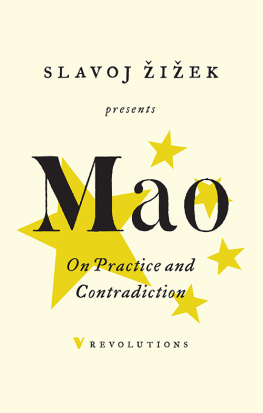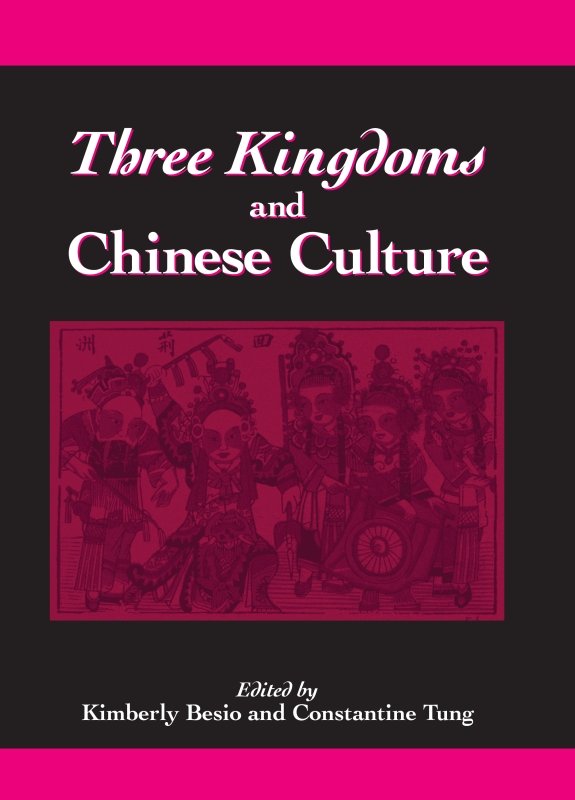
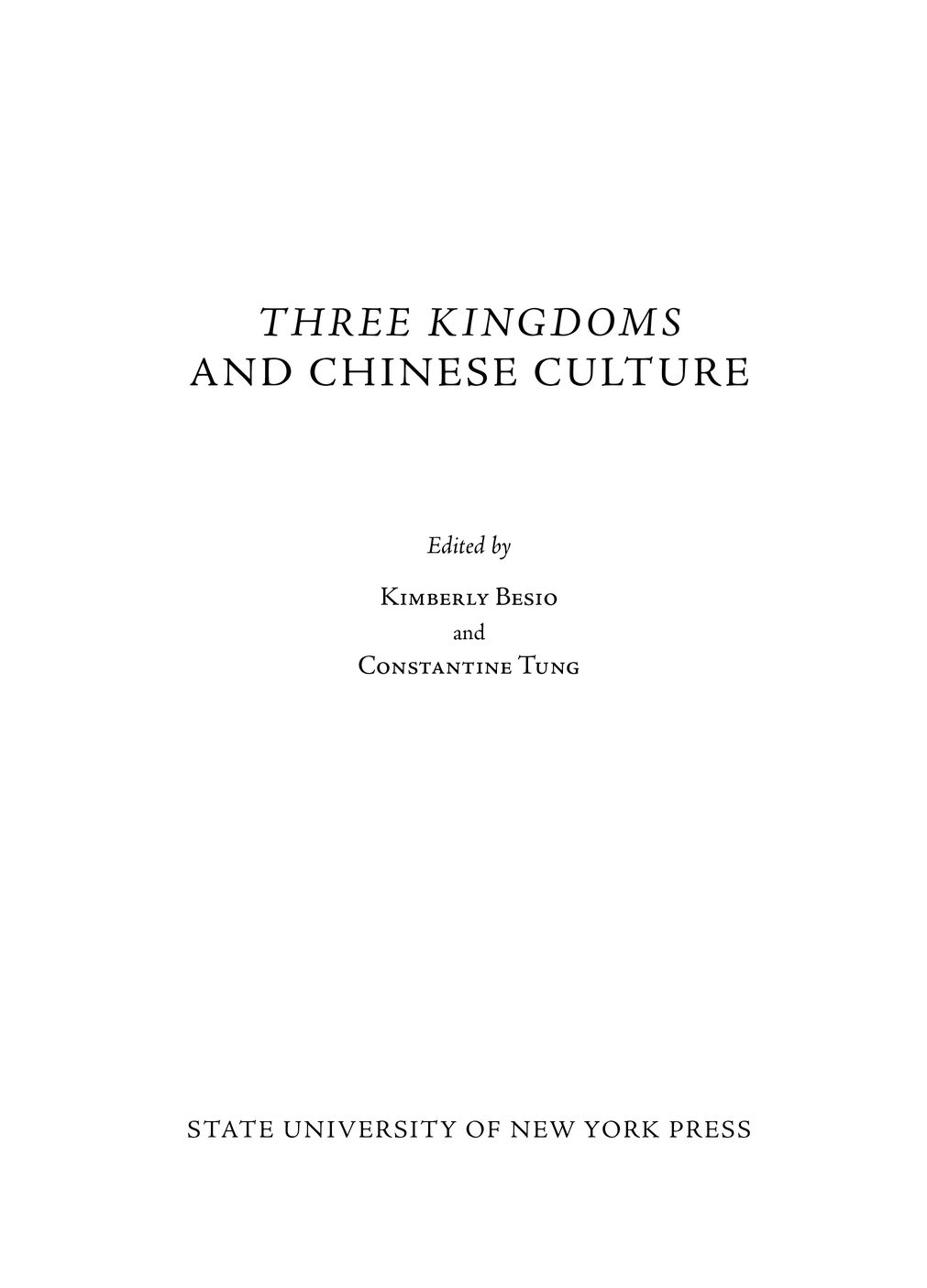
Table of Contents
SUNY Series in Chinese Philosophy and Culture
Roger T. Ames, editor
Foreword
The Language of Values in the Ming Novel Three Kingdoms
MOSS ROBERTS
Three Kingdoms (Sanguo yanyi) can be read as a study of values in conflict, such as righteousness (yi) against loyalty (zhong), and filial piety (xiao) against brotherhood (xiongdi). In a time of peace and stability, these ideals should coexist and enhance one another; in a time of crisis they may become incompatible. The word yi, a key term in the novel, can be rendered widely in English by any of the following: responsibility, obligation, duty, the Code, commitment, service, cause, self-sacrifice, honor. In his essay in this volume Jiyuan Yu translates the term as appropriateness. At the conventional end yi refers to the duties required of a particular role. In the Liyun chapter of the Liji the phrase duties of men (zhongcheng) covers a wide range of social and political obligations including the fathers kindness, the sons filiality... the rulers benevolence, the vassals loyalty, and so on. At the extreme end, however, yi involves sacrifice, as in the common phrases jiuyi (to die for the mission) or dayi mieqin (for the sake of the greater cause to destroy family bonds). The phrase yanyi in the novels title, really a genre title, probably signifies elaborating on the moral significances of. Thus yi in its semantic richness and versatility forms a contrast with the more restricted term zhong. In early and mid Warring States texts zhong typically meant single-minded sincerity; by the end of the period, in the Xunzi, for example, it means a vassals loyalty to the state or the emperor, as in the Liyuri phrase cited above, zhongcheng. Thereafter, the word zhong stabilized in that sense, and cheng roughly meant sincerity. The common compound zhongcheng probably is a synonym compound, true-hearted sincerity.
Ideally, zhong and yi, loyalty and honor, should reinforce each other. In chapter 1 of Three Kingdoms, when the three brothers take an oath jieyi (binding their honor) to die for one another and to aid the Han royal house, zhong and yi are aligned. The brothers mutual commitment (yi) supports their loyal service to the Han throne. At a later point in the narrative, however, the two values become opposed. When Cao Cao captures Lord Guan (Guan Yu), Lord Guan chooses not to die honorably for his lord, Liu Bei (Xuande), who has disappeared in the chaos of battle; instead Lord Guan surrenders to Cao Cao, stipulating that his surrender is to the Han throne and not to Cao Cao, who is virtually the shogun of the Han dynasty. In this way Lord Guan turns his submission to Cao Cao into an act of loyalty to the Han emperor, a virtual puppet of Cao Cao. Soon after, upon discovering that Liu Bei still lives, Lord Guan chooses to honor his commitment to his elder brother Liu Bei: he leaves Cao Caos service to rejoin Liu Bei. At this point yi again takes precedence over zhong. The ambiguity of values here is reflected in Zhang Feis behavior. The third brother has become suspicious of Lord Guans sojourn with Cao Cao, and attacks Lord Guan for betraying Liu Bei (chapter 28). It falls to Liu Beis wives to defend Lord Guans conduct and avert a showdown between the two brothers.
Two decades later, in the final crisis brought on by Shus ill-fated invasion of Wu, it is Liu Beis turn to repay Lord Guans devotion. The Southland leader Sun Quan has captured Lord Guan and put him to death; Liu Bei decides to avenge his brother (to satisfy the demands of yi) by leading the Riverland (Shu-Han) attack on the Southland (Wu). By launching this invasion, Liu Bei forsakes his quest to overthrow the usurping Wei dynasty and restore the Han (zhong). Kongming (Zhuge Liang), who stands for zhong and for xiao, but not for yi, had opposed this campaign, just as he has had his doubts about the brotherhood all along. The novelist, however, means to show that yi prevails over zhong. It is perhaps for this very reasonnamely, the brothers commitment to one another rather than to Liu Beis imperial careerthat readers have taken the three into their hearts.
If for the brothers yi takes precedence over zhong, it also takes precedence over family ties and values. The rubric phrase comes from the Zuozhuan (Yin 4): dayi mieqin. This means for the sake of the higher cause to sacrifice the bonds of kinship. The principle of dayi mieqin is enacted in the opening of chapter 42 of Three Kingdoms, when Liu Bei hurls (or pretends to hurl) his newborn son, A Dou, to the ground. Zhao Zilong had found A dou stranded on a battlefield, carried him safely back to camp, and then presented the baby to Liu Bei. (The novelist gives the task of saving A Dou to Zhao Zilong because Zilong belongs to Kongmings camp and is not part of the fraternity.) But instead of gratefully rewarding Zhao Zilong, Liu Bei throws A Dou aside, crying out, For the sake of an infant I risked losing a commander! Perhaps Liu Bei intended an homage to the first Han emperor, Liu Bang, who is occasionally invoked in the novel. Fleeing Xiang Yus cavalry, Liu Bang offers to throw his son from his carriage to lighten it, as recounted in the Shijis Annals for Xiang Yu. Both leaders, Liu Bang and Liu Bei, have good reasons for publicly rejecting their sons.
Why do Liu Bei and Liu Bang reject their offspring? Why does Agamemnon sacrifice Iphigenia? Why does Abraham offer up Isaac? Each case exemplifies the rejection of qin (kin) for the sake of yi, as a means both to sustain morale among the followers and to protect a leadership position by a transcendent self-denial. This shows the power of the term yi to bind commitment outside as well as inside conventional relationships; zhong and xiao apply only within established relationships. Yi is an outer virtue. The sacrifice of personal interest and affection to the larger mission (dayi) enhances a leaders virtue and stature. In the specific circumstances of Three Kingdoms, Liu Bei is putting the principle of brotherhood above narrow family interest. An underdog contender, Liu Bei does not want his brothers and comrades to see him give in to a fatherly concern, lest it threaten the solidarity on which the whole military enterprise depends. And yet, the father-son relationship is the bedrock of dynastic government in that it effectively addresses the all-important succession problem. Every king must name an heir or risk losing control of the succession. This is the very reason Kongming values the filial tie above all others. Is it possible, then, to reconcile fraternal comradeship and filial dynasty building? I think that this is the principal problematic of Three Kingdoms.

In the Analects, xiao (filial piety), is a primary value and generally in harmony with state service and loyalty. It is rare for someone who is filial and fraternal to defy his superiors (
Next page





